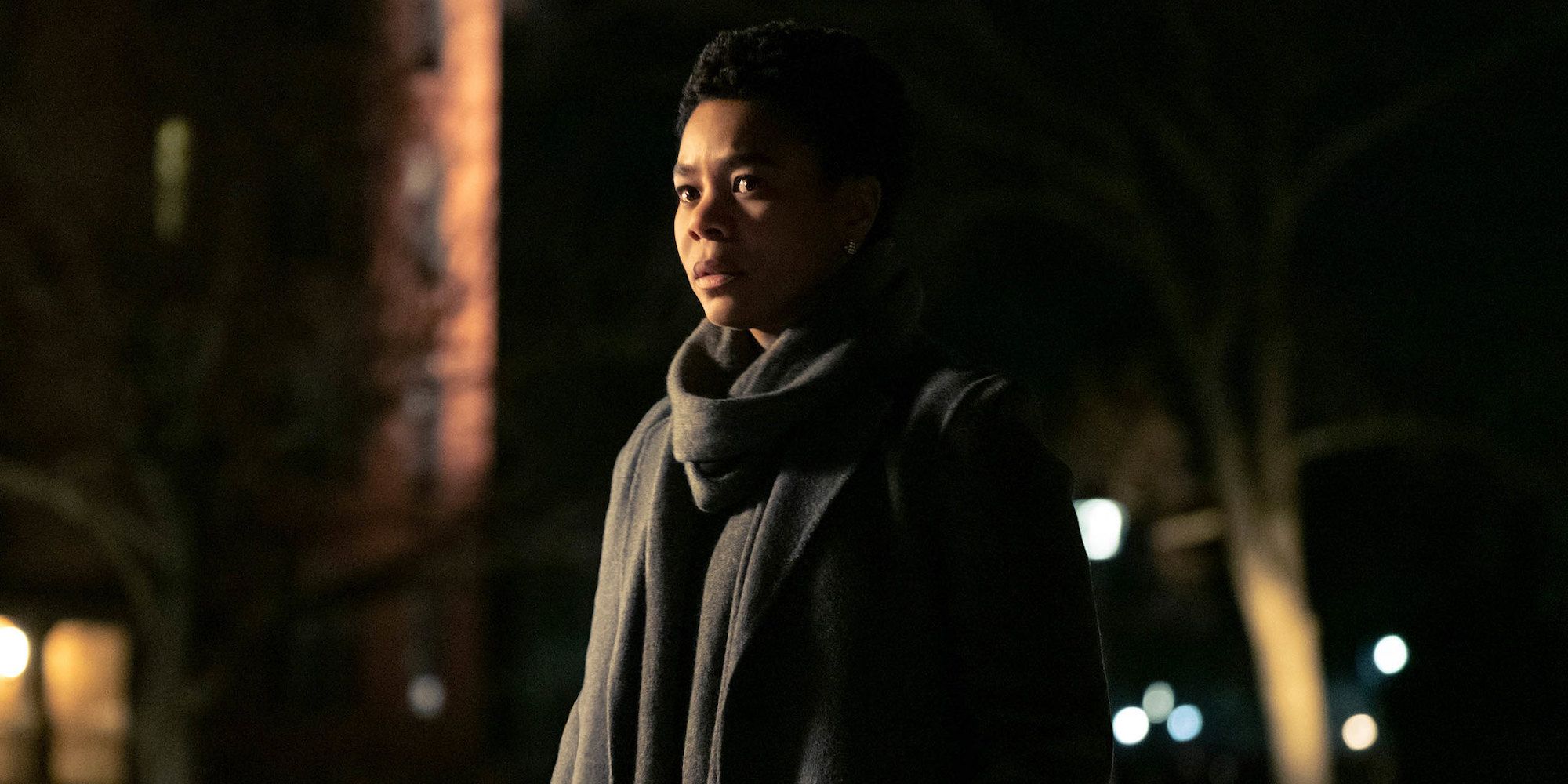Master Review: Mariama Diallo's Debut Feature Is A Striking Horror Film [Sundance]

Writer-director Mariama Diallo’s debut feature film, Master, sets out to explore the institutional racism in Ivy League universities. Centered on three Black women, a student, a dean, and a professor, the film explores the characters’ experiences navigating such a historic institution and how its unsavory history affects their lives and relationship dynamics. Diallo’s script doesn’t always work, especially as Master gears towards an ending that has a lot going on at once, but the everyday horrors add to the layers of unease that are built into every scene of the film. The combination of supernatural and real-life horror, as well as the cast's solid performances, elevate a film that isn’t so quick to provide answers.
Gail Bishop (an exceptional Regina Hall) is excited about her new position as Ancaster’s, a fictional university in New England, Master (aka, the Dean of students). As the first Black woman to assume the position, Gail is put in uncomfortable situations where her colleagues are casually racist. She shares these experiences with Liv (Amber Gray), a professor who is trying to get tenure despite her limited published work in the eyes of the counsel evaluating her. At the same time, freshman student Jasmine Moore (Zoe Renee) is trying to acclimate to life on campus, unsettled by the story of a witch who haunts the very dorm room she’s in.
Diallo knows how to create a deeply disconcerting atmosphere. While there are horror elements sprinkled throughout Master — a hooded figure who seemingly haunts the halls when the lights blink out or a bell ringing in Gail’s new home despite there being no one there — it’s the subtle racism the characters experience that make up the feelings of unease. Jasmine at a party with the predominantly white students loudly singing along to a rap song and brazenly saying the n-word; Gail trying to mingle with her colleagues while on the receiving end of comments comparing her to Barack Obama; the librarian checking Jasmine’s backpack to make sure she didn’t steal any books.
The list goes on and, although Master doesn’t fully capitalize on this buildup in the end, choosing to introduce another layer to Liv’s story in the final moments that feel rushed, Master deftly maneuvers through the characters’ experiences in a way that feels sinister. Even Jasmine’s experiences with Liv are layered, with implications of colorism and holding Jasmine to different standards that make everything all the harder for her to achieve the same success as her peers. Liv, who fails Jasmine’s essay on The Scarlet Letter, is much harder on her than she is on her white students. A revelation that comes later on could explain why that is, but Master maintains a sense of vagueness that will leave the audience pondering every interaction.
Diallo certainly knows how to create atmosphere and the film’s most terrifying moments aren’t even ones that happen in the darkness of night. Master examines how all the microaggressions affect the characters in their daily lives. Jasmine is an outsider not because she’s quiet, but because her classmates’ racism contributes to the feeling of her not belonging. At one point, Diallo intercuts the university's promotional video about diversity (which is so painful considering there really isn’t any at Ancaster) with an intense scene that is meant to drive a message home.
Ancaster, like any other historical institution that is made up of a white majority, can’t contend with its racist past and present because the students and faculty aren’t self-aware enough to understand the issue at all, nor do they seem keen on actively doing anything about it. This blatant ignorance harms Gail, Jasmine, and Liv, all of whom are trying to fit in and prove themselves in one way or another. Can the Ivy League school be changed from within? The film ponders this question, but the answer seems to come in Gail’s final decision, a pertinent scene in Master’s final moments that make for a contemplative finish.
However, there are aspects of the film that don’t feel fully formed. Liv’s backstory is revealed too late in the narrative to have a bigger impact. Master also struggles to balance all three characters at once, with Gail moving to the forefront only after a major shift in Jasmine’s story occurs. The chapters that split the film into different parts could’ve been dropped without losing anything. What’s more, the legend of the witch who haunts Ancaster’s campus ultimately falls flat because nothing really comes of it despite the mystery taking up a decent amount of the film. Despite these issues, Master is a solid debut by Diallo, who knows how to create a deep sense of discontent to elevate the story.
Master had its premiere at the 2022 Sundance Film Festival and will be available to stream on Amazon Prime Video on March 18. The film is 91 minutes long and is not yet rated.
from ScreenRant - Feed https://ift.tt/3o76wa0
via Whole story

Post a Comment